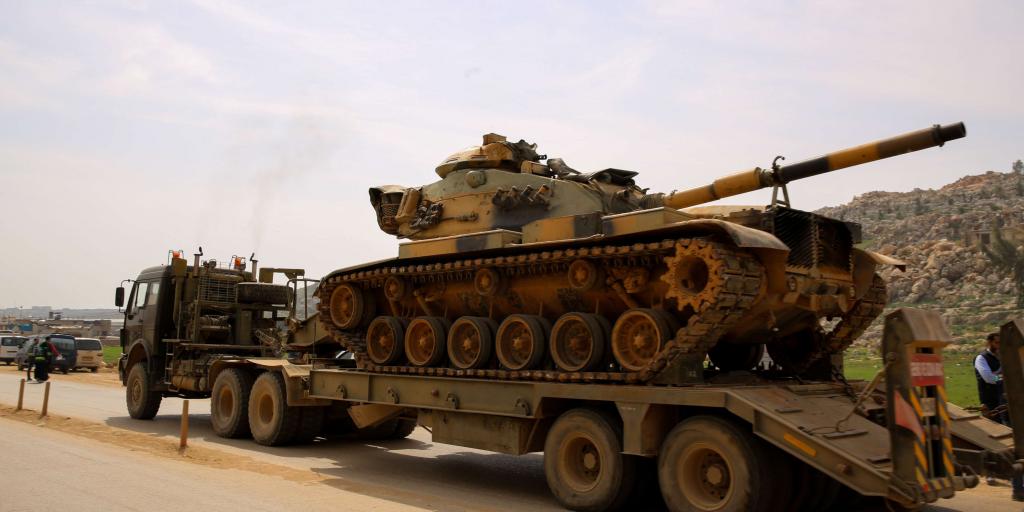Turkey’s reinforcements in Syria signal end of fragile calm
Turkey’s military build-up in northwest Syria signals a possible end to the recent lull in fighting in the area, Arab News said on Thursday, citing analysts.
Turkey is sending reinforcements to Idlib in the hope of deterring a military campaign led by Russia and the Syrian army targeting rebel groups in Idlib, Ruwan al-Rejoleh, an independent analyst based in Washington, told Arab News.
“Turkey is mobilising Syrian armed factions like Faylaq al-Sham and others to be on the frontlines facing this potential offensive by Russia and the regime forces,” she said. Faylaq al-Sham is an Islamist faction fighting against the Syrian government in northern Syria.
The Syrian Observatory for Human Rights and Middle East Monitor reported that at least five Turkish large military convoys consisting of armoured combat and support vehicles have entered Syria’s northwestern Idlib province in the past nine days.
Russian President Vladimir Putin and Turkish President Recep Tayyip Erdoğan brokered a ceasefire agreement on March 5 to end the fighting in Idlib between Turkish-allied armed groups and the Syrian military, which is backed by Russia.
The deal stipulated the establishment of a security corridor stretching around 6 kilometres north and south of the strategically vital M4 highway which connects Latakia and Saraqib. As part of the agreement, Turkish and Russian military units have conducted joint patrols along the highway to buffer between pro-Damascus forces and rebel and Islamist militias.
Russia suspended the patrols after repeated drone attacks by militants on Russia’s Khmeimim air base in the Latakia province, Euronews reported on Aug. 14, citing the Russian Foreign Ministry.
“It is likely that Russia aims to control the south of the M4 highway from Jisr Al-Shughoor, in order to secure Latakia,” Rejoleh said.
The analyst suggested that the objective behind Turkey’s recent military mobilisation was to ensure the security of Turkish forces already present in Idlib.
Navvar Saban, a military analyst at the Omran Center for Strategic Studies in Istanbul, shared Rejoleh’s insight that neither Russia nor Turkey was attempting to initiate a major confrontation at the moment.
“But still there is a communication gap that is being used by local forces,” he told Arab News. “That’s why we saw regime forces launching attacks. And this gap (adds further) fragility to the situation.”
Saban said that the renewed tensions can be used to hasten political events – such as another round of peace talks between the leaders of Turkey, Russia and Iran, aimed at launching a political process involving all parties involved in the Syrian conflict, according to Arab News. The last round of talks was held on July 1.
On Thursday, Turkish Foreign Minister Mevlüt Çavuşoğlu spoke with Russian Foreign Minister Sergey in a phone call to discuss developments in Syria, the state-run Anadolu news agency reported, citing a Turkish diplomatic source.
The source, who spoke on condition of anonymity due to restrictions on speaking to the media, did not reveal further details of the conversation.
Source: Turkey’s reinforcements in Syria signal end of fragile calm – analysts | | Ahval


